DMX Receivers & DMX Decoders
- Control Capability: DMX receivers and decoders allow control of DIM, CCT, RGB, RGBW, and RGB+CCT lighting types via DMX master controllers (e.g., panels, consoles).
- Signal Conversion: DMX signals can be converted to SPI, 0/1-10V, and other output signals. For long-distance DMX512 signal transmission, signal amplifiers can be used to enhance the signal.
- RDM Support: All decoder series support RDM functionality. DMX addresses can be set directly on the decoder or remotely via an RDM console.
- Adjustable Settings: DMX start address and output channel numbers can be set using buttons, with settings displayed on a digital tube display.
- Gray Scale & PWM Frequency: Choose between 8-bit or 16-bit gray scale decoding and a variety of PWM frequencies, including 250, 500, 1000, 2000, 4000, 8000, and 16000 Hz.
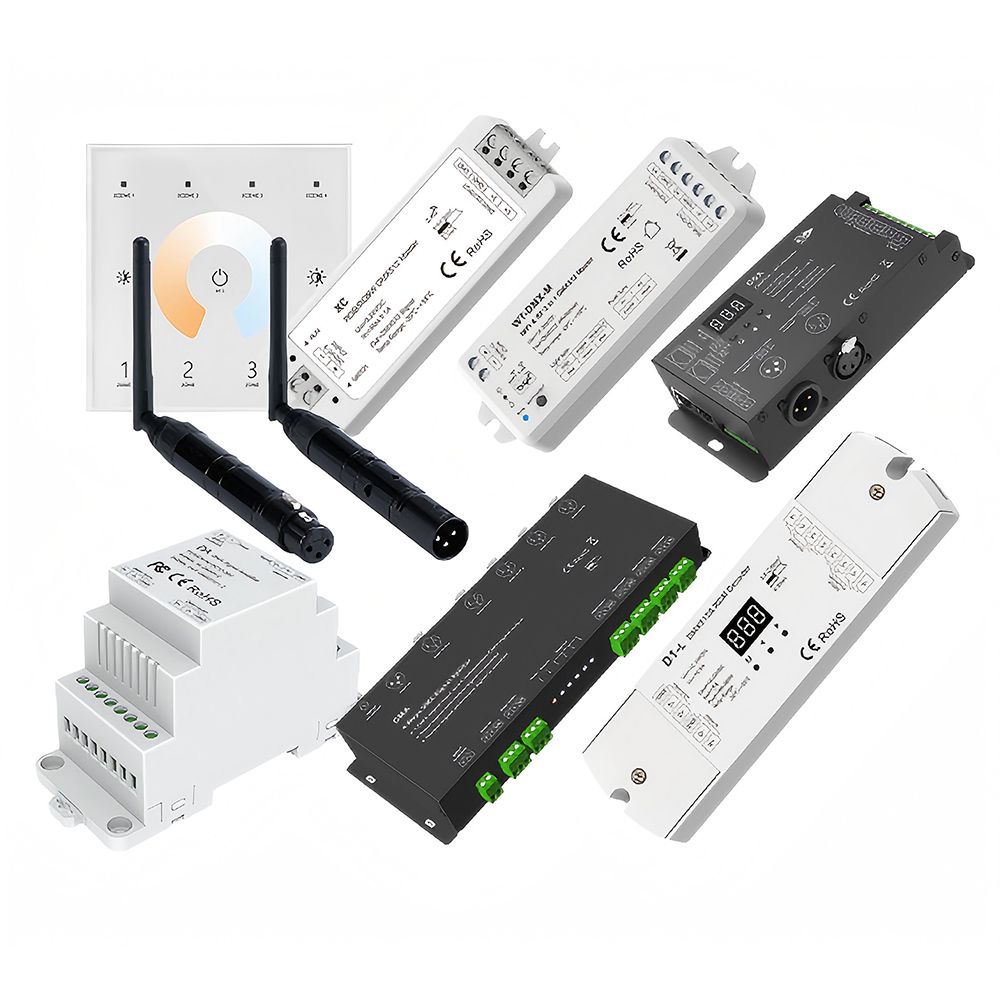
What is DMX Receivers & DMX Decoders Controller ?
DMX receivers and DMX decoders are key components in DMX lighting control systems, working together to manage the brightness and color changes of LED strips.
- DMX Receiver: Acts as an intermediary device between the DMX controller and LED strips. It receives DMX signals and converts them into control signals that the lighting fixtures can understand. DMX receivers typically have multiple input channels, with each channel capable of controlling one LED strip or a group of strips.
- DMX Decoder Controller: Serves as one of the core components in the DMX system. It sends control signals to the DMX receivers. Through programming, the decoder can control the brightness, color, and lighting effects of the fixtures. DMX decoders usually have multiple output channels, with each channel independently controlling one LED strip or a group of strips.
These devices enable precise and dynamic lighting control for complex installations, making them essential for DMX systems.
DMX Receivers & DMX Decoders
We offer a wide range of DMX decoders and receivers, including DMX512 decoders, master controllers, signal converters, and signal amplifiers. These devices are primarily used to control DMX dynamic LED strips, enabling vibrant, colorful lighting with effects like gradual transitions and flowing animations.
Our DMX solutions are ideal for:
- Nightclub lighting
- Bars
- Casinos
- Entertainment venues
- Theaters
- Film sets
- And many other projects requiring customized LED lighting control.
With diverse color options and dynamic effects, our DMX products bring creativity and flexibility to your lighting designs.
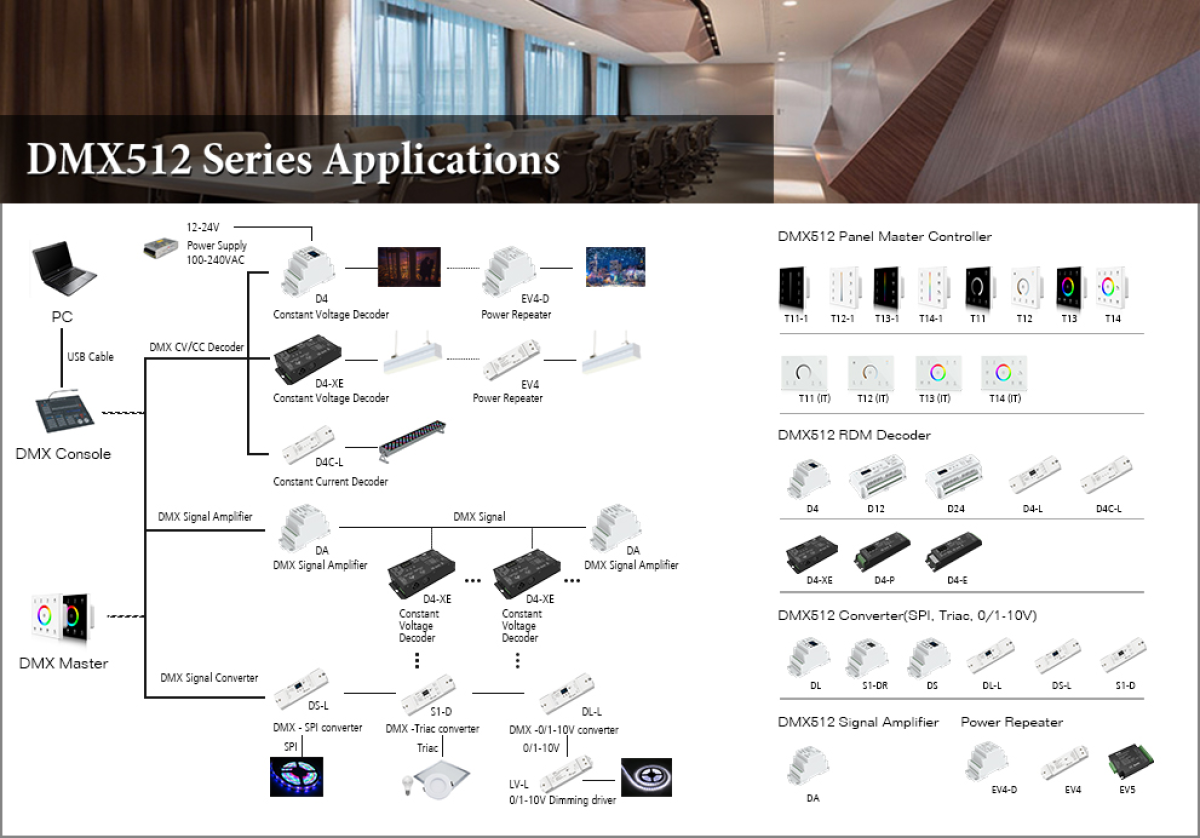
DMX512 Master & Receivers
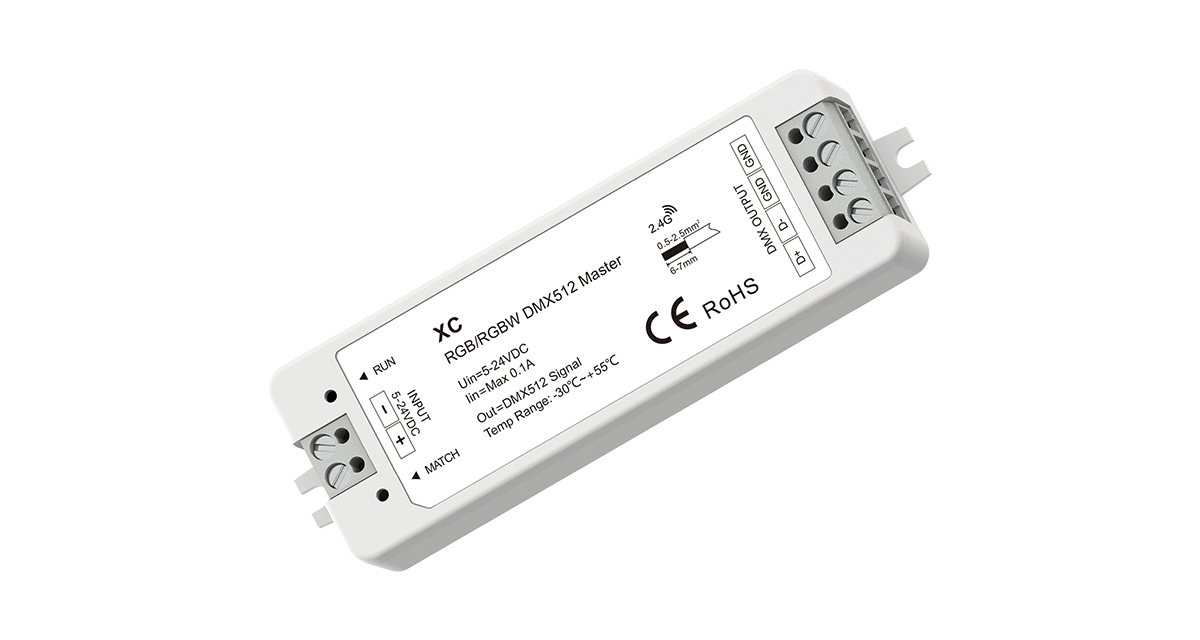
XC
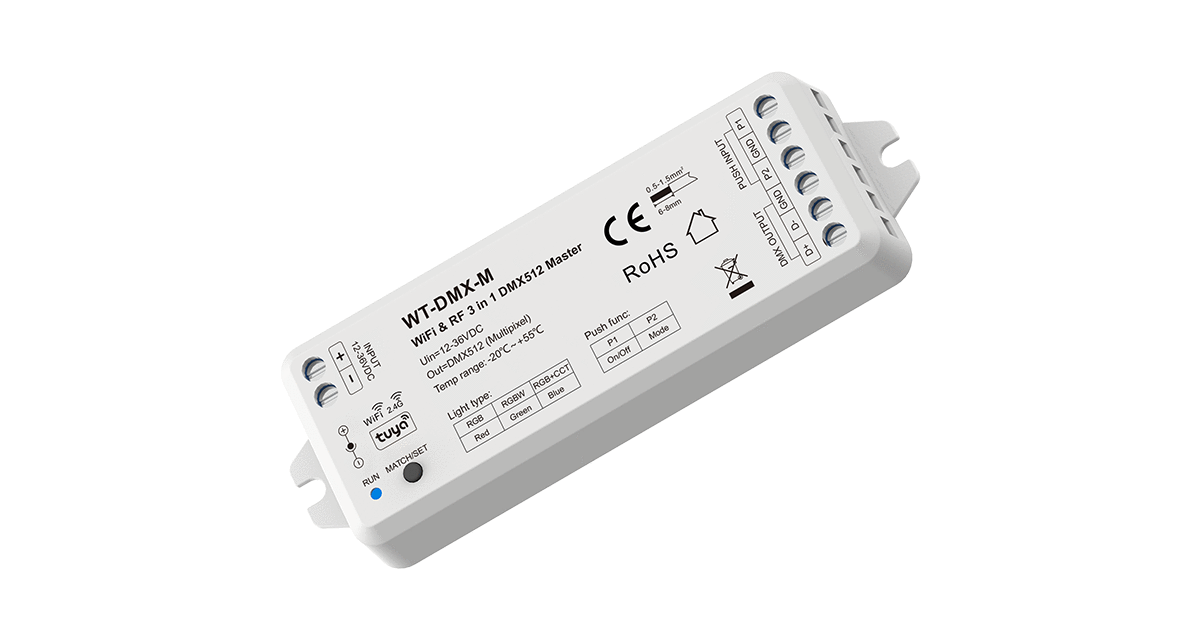
WT-DMX-M
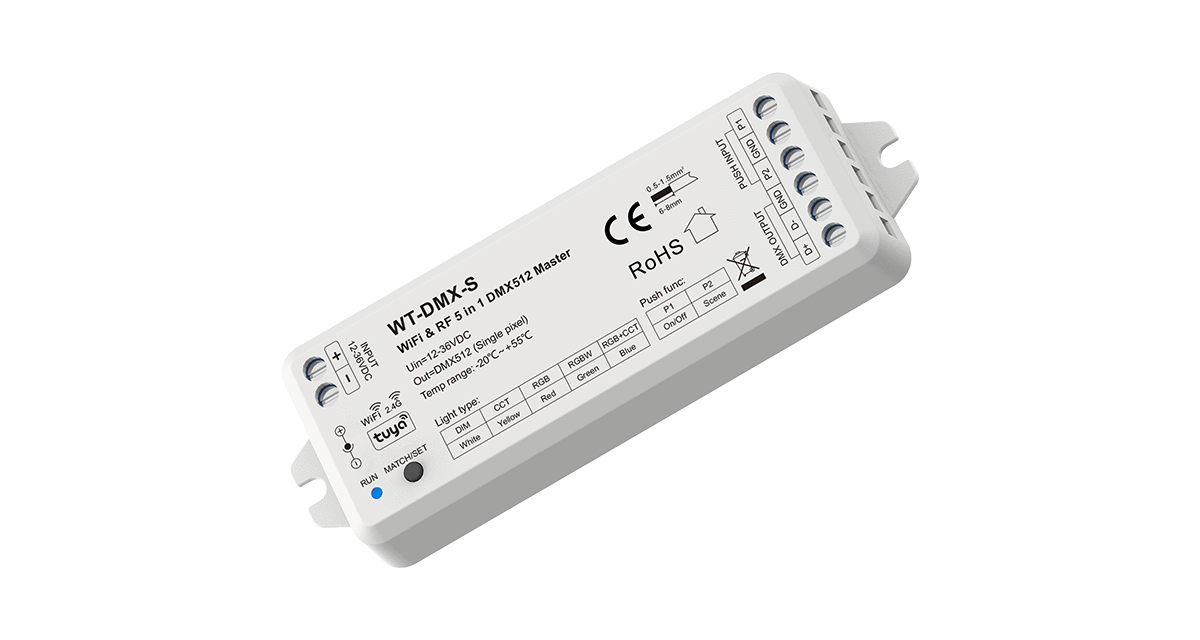
WT-DMX-S
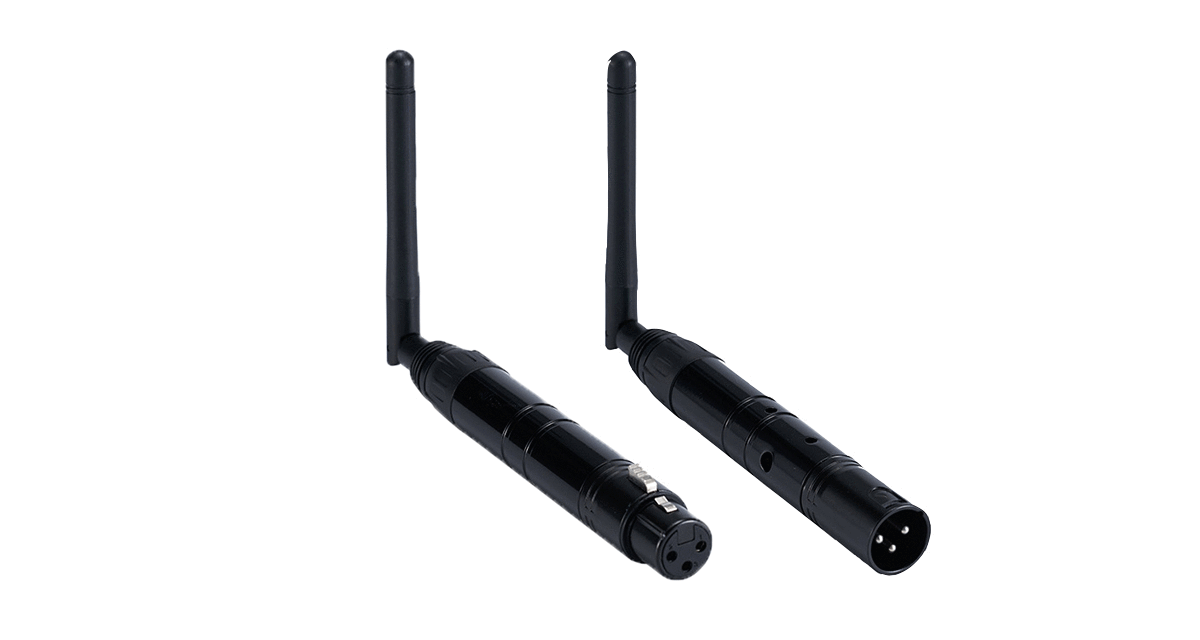
DM-WT
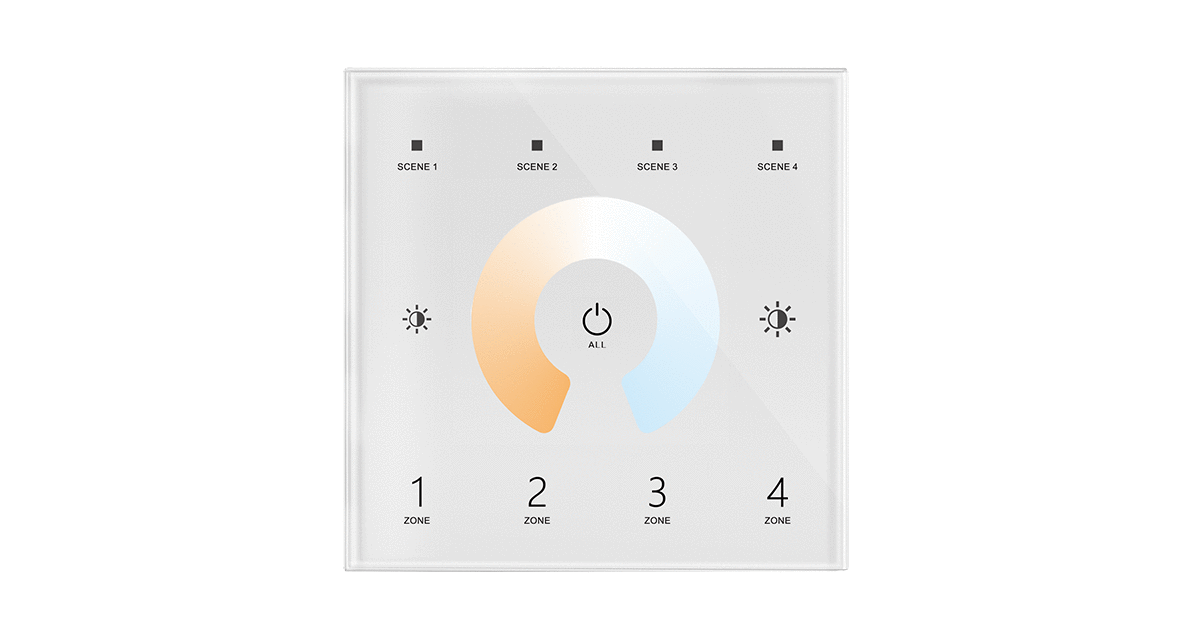
T12
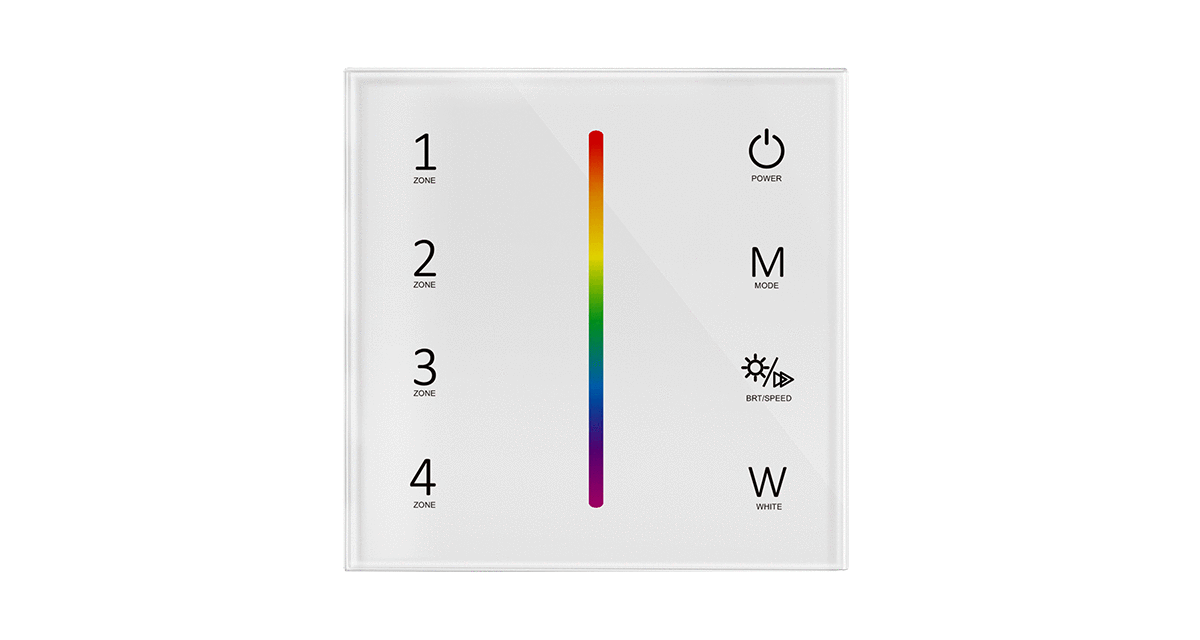
T14-1
CV DMX512&RDM Decoder
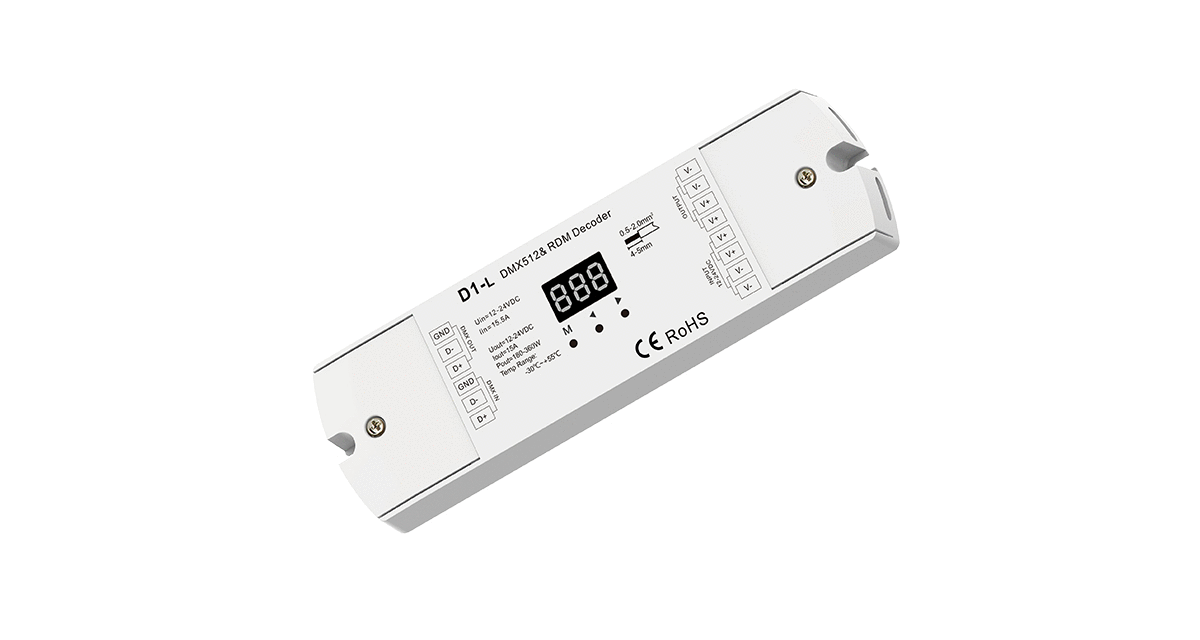
D1-L
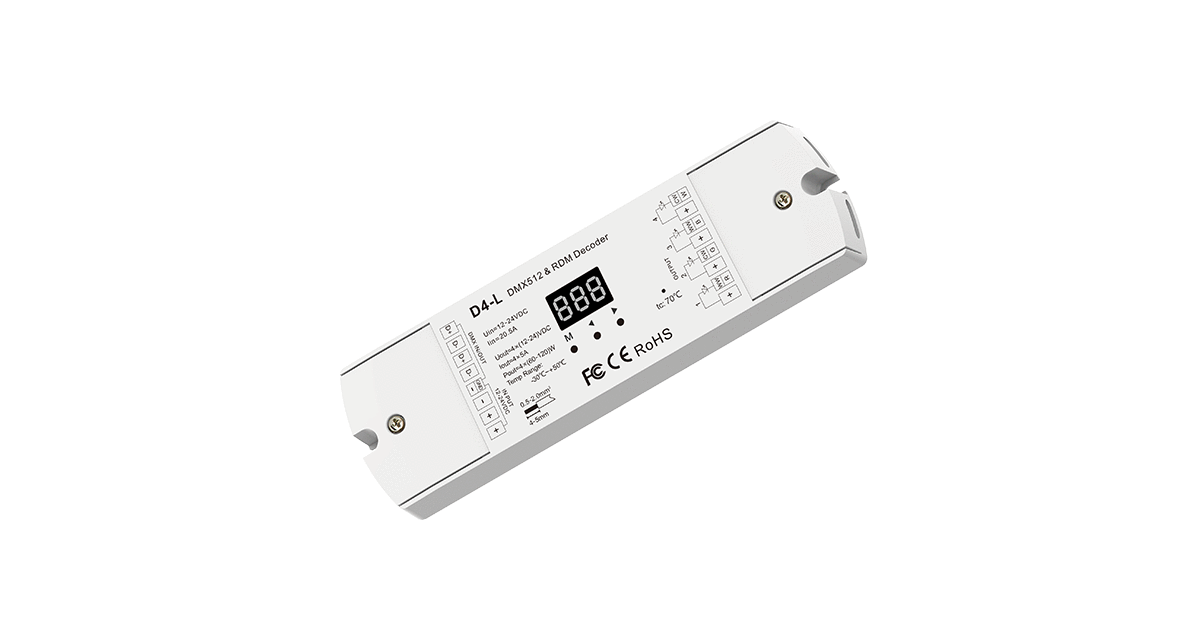
D4-L
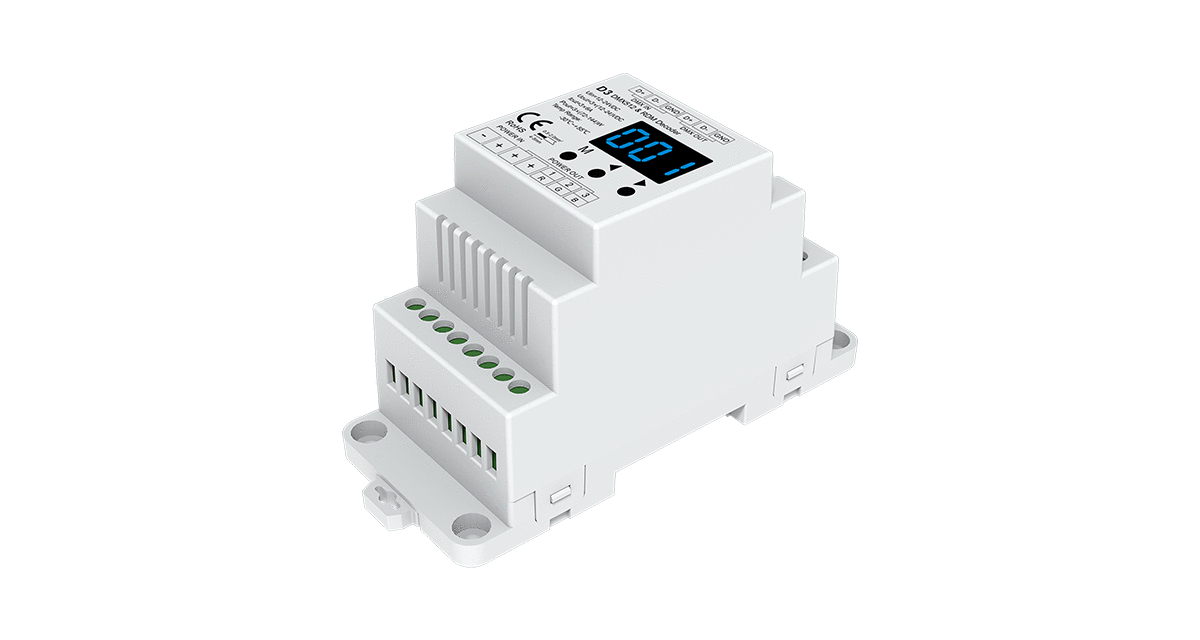
D3
DMX-SPI Decoder
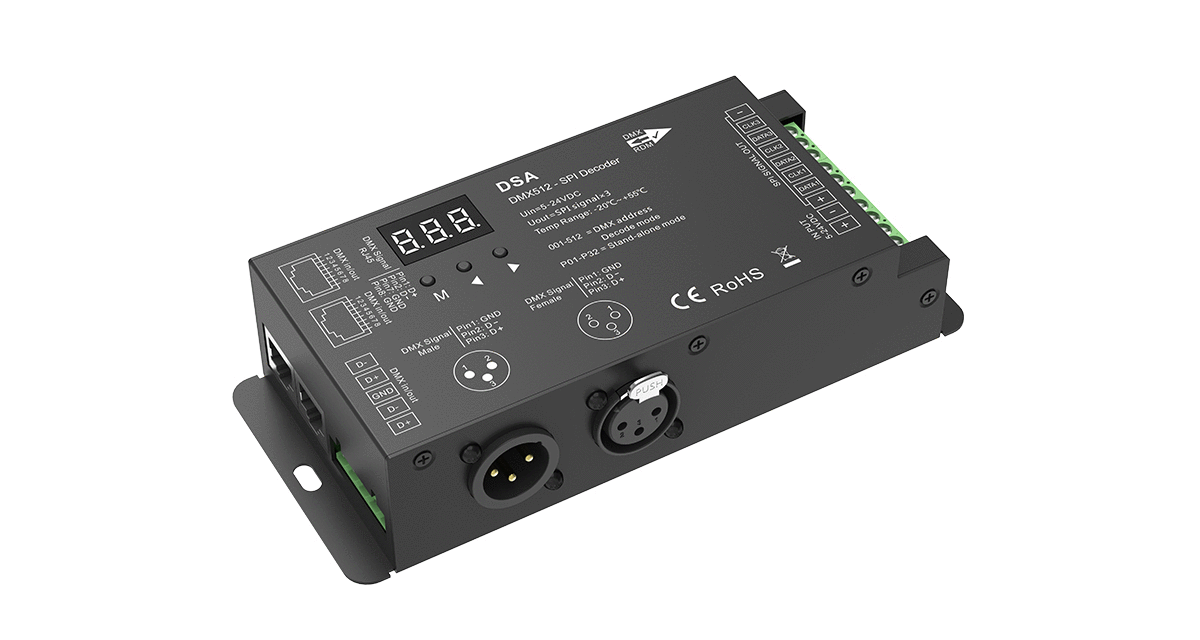
DSA
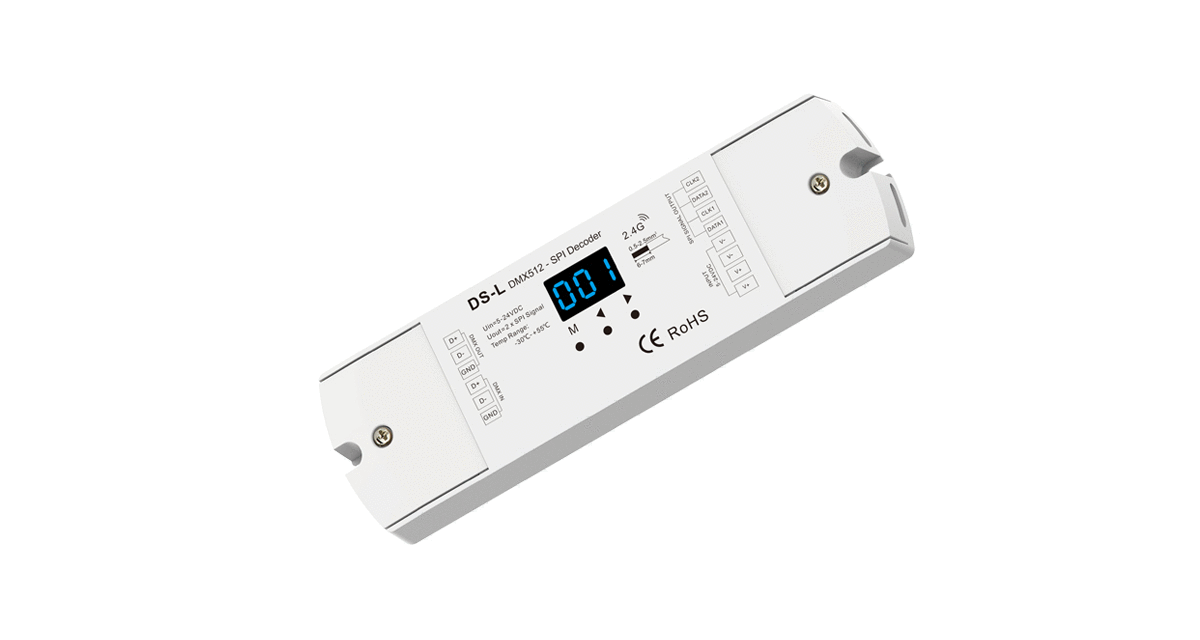
DS-L
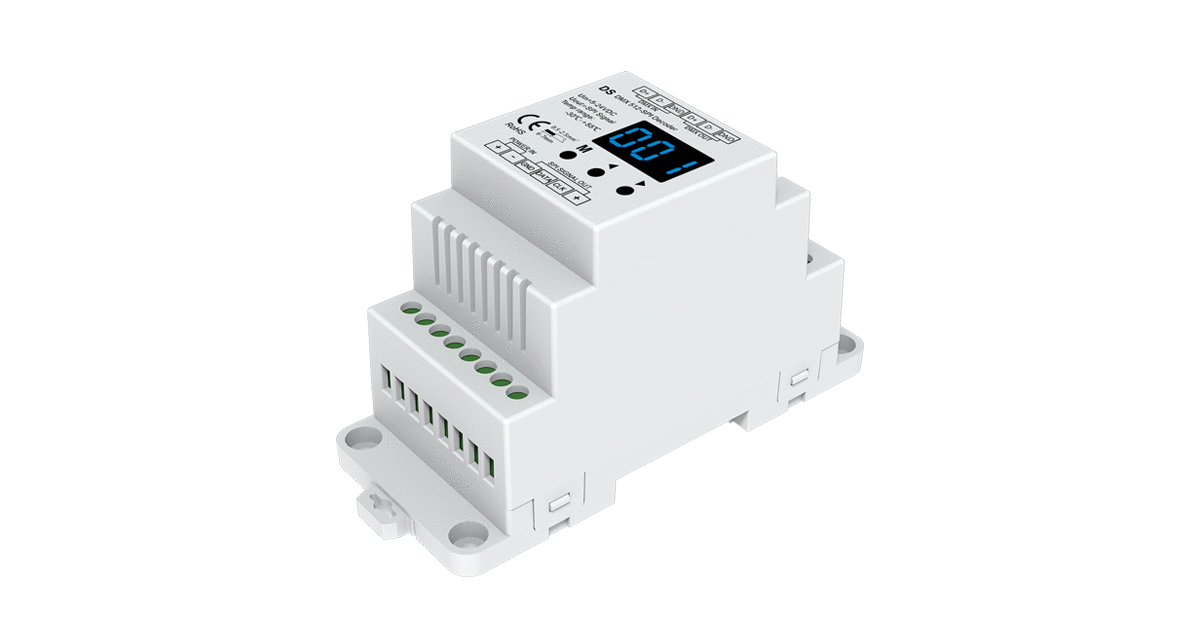
DS
DMX512 Signal Amplifier
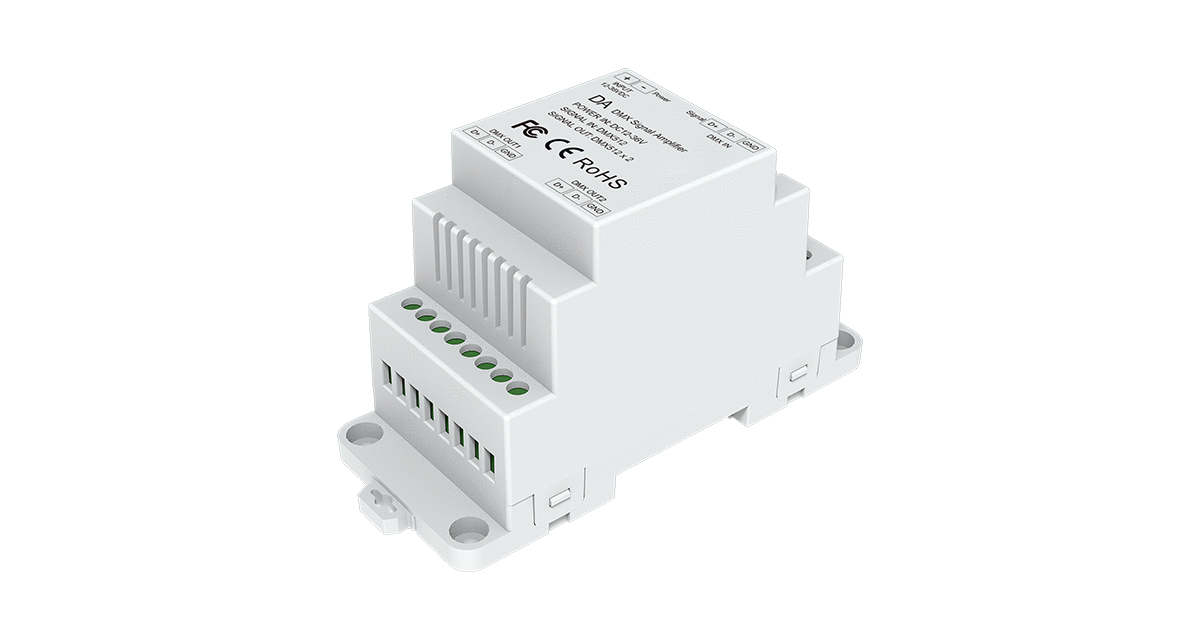
DA
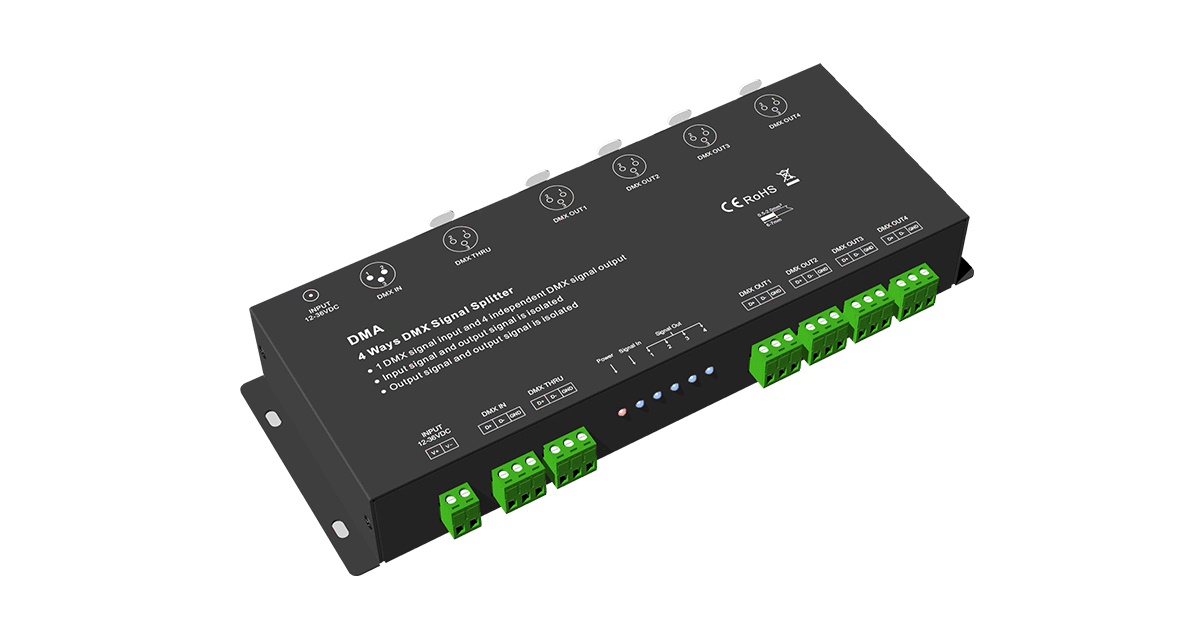
DMA
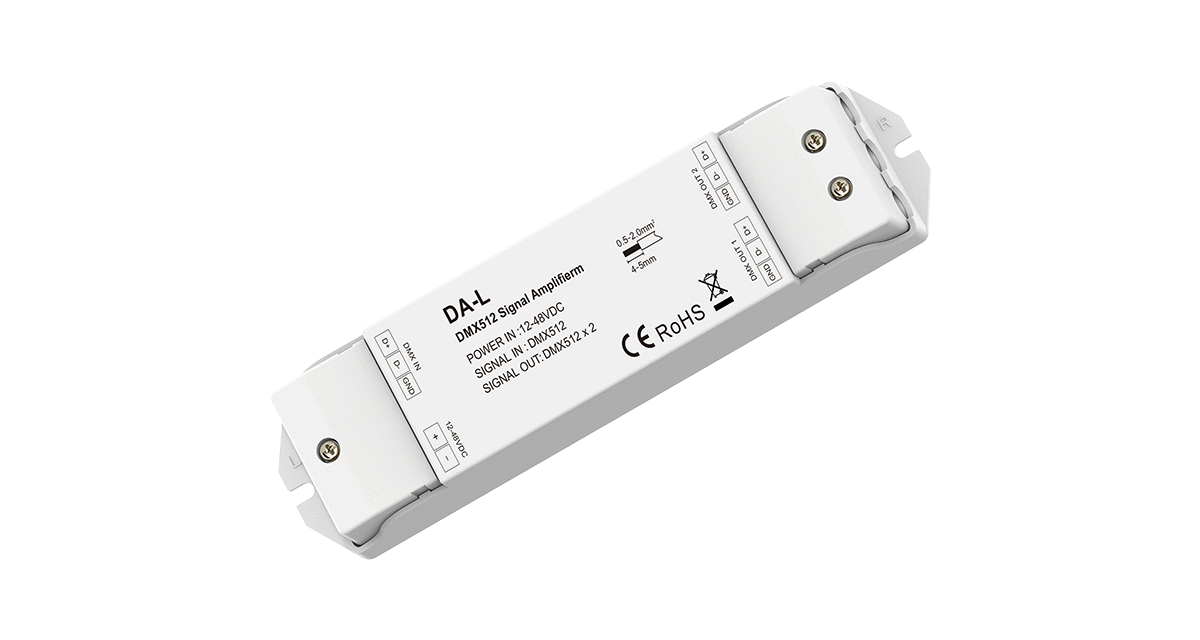
DA-L
Videos of Single Colour Controllers
FAQs
Here is the top frequent asked questions. If you are still not very clear, feel free to content our consultant for more details.
We offer FREE SAMPLES for your business.
A DMX decoder is a core component of a DMX system, responsible for sending control signals to DMX receivers. It can be programmed to manage the brightness, colors, and dynamic effects of lighting fixtures. DMX decoders typically have multiple output channels, with each channel independently controlling one LED strip or a group of strips.
Whether you need a DMX decoder depends on your project requirements. If you are using DMX512 control signals to operate LED strips or other lighting devices, a DMX decoder is necessary.
Advantages:
- Improved Signal Accuracy: A decoder converts digital signals into analog signals, enhancing the sampling bit depth and frequency, which improves precision and makes audio or lighting signals more realistic.
- Quality Enhancement: It ensures high-quality signal conversion, enabling accurate and reliable lighting effects.
Disadvantages:
- Price Variation: There is a wide range of decoders available in the market, with significant quality and price differences, ranging from affordable options to high-end models. This variety may confuse buyers, and some may encounter exaggerated specifications or low-cost traps.
- Compatibility Issues: Compatibility between different brands and decoders can vary, requiring users to select decoders that meet their specific needs.
DMX devices are digital communication tools used to control stage lighting and other effects. DMX stands for "Digital Multiplex," referring to multi-channel digital transmission. DMX devices primarily operate using the DMX512 protocol, which defines the structure of the signals. This protocol allows a single interface to control up to 512 channels, with each channel independently managing a lighting fixture or effects device.